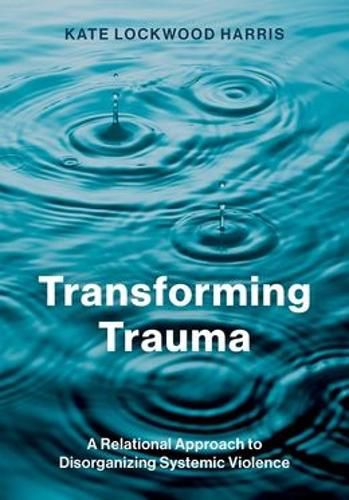Readings Newsletter
Become a Readings Member to make your shopping experience even easier.
Sign in or sign up for free!
You’re not far away from qualifying for FREE standard shipping within Australia
You’ve qualified for FREE standard shipping within Australia
The cart is loading…






Transforming Trauma emerges from contemporary, overlapping social challenges: Global losses of life and connection amidst the COVID-19 pandemic; brutal US police murders of Black and brown people followed by uprisings against systemic racism; and organizing against pervasive gender-based and sexual violence. In the wake of these historical and ongoing events, many people have experienced personal and collective trauma. Although much has been written about how individuals can resolve their personal traumas, and some literature reflects on healing collective trauma, little has been written about how organizations themselves experience trauma and can transform it. This book takes up that work. It does so by relying on relational theories, ways of thinking/being that encompass feminist new materialism, affect theory, intersectionality, and transformative justice. Together, relational theories share this premise: the world consists not of static, separate entities, but of constantly reconfigured connections and interactions. Transformative change, it follows, comes not from
$9.00 standard shipping within Australia
FREE standard shipping within Australia for orders over $100.00
Express & International shipping calculated at checkout
Stock availability can be subject to change without notice. We recommend calling the shop or contacting our online team to check availability of low stock items. Please see our Shopping Online page for more details.
Transforming Trauma emerges from contemporary, overlapping social challenges: Global losses of life and connection amidst the COVID-19 pandemic; brutal US police murders of Black and brown people followed by uprisings against systemic racism; and organizing against pervasive gender-based and sexual violence. In the wake of these historical and ongoing events, many people have experienced personal and collective trauma. Although much has been written about how individuals can resolve their personal traumas, and some literature reflects on healing collective trauma, little has been written about how organizations themselves experience trauma and can transform it. This book takes up that work. It does so by relying on relational theories, ways of thinking/being that encompass feminist new materialism, affect theory, intersectionality, and transformative justice. Together, relational theories share this premise: the world consists not of static, separate entities, but of constantly reconfigured connections and interactions. Transformative change, it follows, comes not from